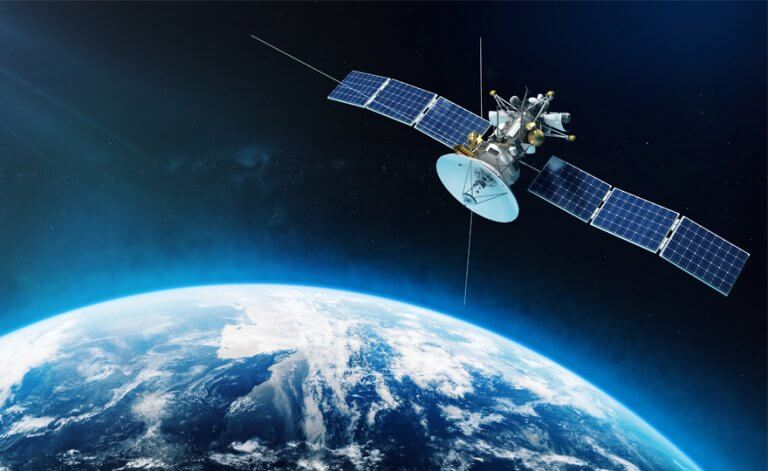Asia’s satellite market the ‘hardest’ in a decade—source
May 4 2021 by Andrew Tjaardstra
The satellite insurance market in Asia is at its hardest for a decade in line with a ongoing global trend, a senior market source told InsuranceAsia News (IAN).
Around US$450 million of gross written premium (GWP) is placed globally each year but since one loss can generate hundreds of millions of dollars in claims, the market dynamics change quickly. While launches are often the key causes of large losses, failures also occur during orbit.
Already in 2021, a major US satellite operated by SiriusXM Radio with US$225 million in aggregate insurance was lost after only launching in December 2020. In 2019, the ChinaSat-18 telecom satellite had a major malfunction several weeks after its August 19 launch resulting in a US$250 million loss. For ChinaSat-18, the People’s Insurance Company of China (PICC) was the primary insurer.
In China, insurer’s tend to provide capacity in the tens of millions — up to a limit of around US$40 million — the source said, adding that situation tends to be similar in Japan and South Korea. Regulatory requirements force the risk to be first placed locally — with the majority of the risk then reinsured globally.
This means the majority of the premiums and losses in Asia are handled by the global reinsurance market through the likes of Lloyd’s in London, Axa XL and Munich Re. Brokers with local and global networks are therefore key to placing satellite.
Expensive satellites can cost up to US$350 million with ‘cheaper’ ones priced at around US$150 million. Operators generally take over the cover when the satellite moves from the manufacturer to the launch pad.
According to Munich Re, the different types of covers available include pre-launch insurance, launch insurance, in orbit insurance and a combination of all three — something the reinsurer calls “launch plus life insurance”. Once in orbit, satellites tend to have a lifespan of 15 years and annual insurance renewals can be arranged based on engineering reports. Satellites depreciate in value over the period.
There are an array of satellite operators in Asia including Paris-headquartered Eutelsat, Japan’s JSAT and South Korea’s KSAT. Eutelsat has a Singapore office and is planning six satellite launches over the next three years, according to its website.
Asian governments are also big backers of satellite operators and sometimes provide insurance to help the industry develop. Jurisdictional laws around third party liability in space are also extremely important.
In Indonesia, a public private partnership (PPP) has raised US$550 million to fund a satellite called SATRIA which is aiming to launch in 2023. The plan is to connect around 94,000 schools and educational institutions, 50,000 government offices and 3,700 health facilities not linked by existing satellite or terrestrial infrastructure.
Lloyd’s is predicting that the global space industry will grow threefold by 2040 — from today’s US$300 billion to US$1 trillion boosted by private space companies such as Elon Musk’s SpaceX.
-
Forget the noise, geopolitical tensions demand scenarios not predictions
- February 20
Hoe-Yeong Loke, head of research at UK risk management association Airmic, tells InsuranceAsia News rare earth minerals and tensions around Taiwan are likely to remain pressing issues for Asia and the global supply chain.
-
Does Zurich’s US$11bn Beazley deal signal the end of the Lloyd’s listing experiment? Survivors are now in the spotlight
- February 16
Deal will leave only two Lloyd’s players – Hiscox and Lancashire – listed on the London Stock Exchange, with capital-rich Japanese insurers expected to be amongst those circling.
-
Resilience’s the word: calls for strategic shift, and it’s no longer optional
- February 13
Resilience has shifted from an operational buzzword to a strategic boardroom imperative, risk management organisation Airmic says.
-
‘Positive and progressing well’: P&I renewals slow and steady amid moderate increases, member loyalty
- February 12
Skuld, Shipowners' Club, Steamship Mutual, Britannia P&I Club and West P&I speak to InsuranceAsia News ahead of the 2026 renewals.
-
QBE | Elevating customer experience, humanising claims: QBE Asia’s ‘Solutions in a Box’
Vastly improving turnaround times and personalising service delivery, QBE Asia’s award-winning, end-to-end bundled claims solutions is a game-changer for the insurance industry.
-
Beazley | What does cyber protection look like from day 1 to day 600 and beyond?
Cybersecurity is no longer just an IT concern, but a governance issue that belongs on the boardroom agenda.
-
Sedgwick | Preparing for the next storm
Insurance industry needs to recalibrate, invest in innovation and strengthen systems, talent and data practices.
-
Peak Re | From climate modelling to market opportunity: Forging a new clarity on Southeast Asia’s climate risk
Southeast Asia's protection gap: a crisis of clarity, not just capital

